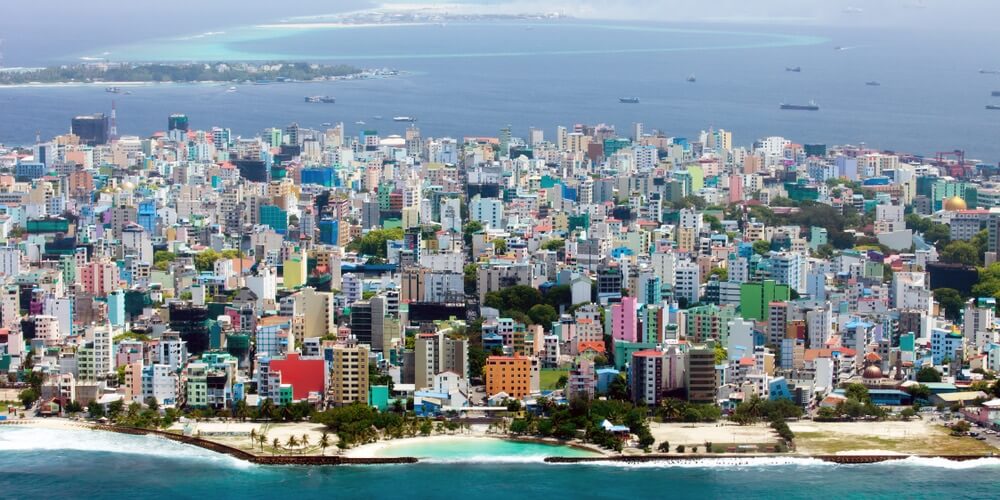Maldives, a majority Muslim south Asian archipelago, plans to boost halal tourism in a move that may also make the country a larger market for halal-certified food imports.
The Maldives local halal market is set to expand through an increase in halal tourism, with the government last May launching a campaign to encourage the development of halal tourism sales. MHT (Maldives Halal Travel) was introduced at the Arabian Travel Market in May 2021 in Dubai with the aim of attracting Muslim tourists to the Maldives, especially from Gulf Cooperation Council (GCC) countries. MHT esimates demand to be worth over $189 billion for holiday packages for Muslim tourists.
At the same time, the Maldives Marketing and Public Relations Corporation – the national tourism office of the Maldives – has launched a digital campaign called ‘Have Halal, Will Travel’ to promote Maldives in the Muslim southeast Asian market. Some resorts already offer halal food, non-alcohol rooms, secluded outdoor pools and modest swimwear rules such as Plumeria Maldives in Thinadhoo Vaavu atoll, Kihaa Maldives in Kihaadhuffaru, Amaya Resorts & Spa Kuda Rah in Kudara and Ayada Maldives in Maguhdhuvaa, among others.
A government spokesman said that the prominence of Islam in the archipelago meant that halal hotels would serve as a supply chain ready for certified food products: “Maldives is a Muslim country so all locals consume halal food,” the spokesperson said.
Imported food sold to its permanent population of 540,500 must be halal certified under the Maldives Food and Drug Authority (FDA) regulations, said Abdullah Shiham Hassan, former head of law in the faculty of Shariah law at the Maldives National University. "This is checked and monitored by the FDA regularly," he explained. The country also bans pigmeat and alcohol imports for the local population. For tourists on the other hand, import licences are issued by the Ministry of Economic Development for non-halal food, including pork and alcohol, to serve more than 1 million annual visitors. The country’s Ministry of Islamic Affairs launches periodic checks to ensure food supplied to Maldives residents is halal, fining and closing down traders, with the help of the Maldives’ Food & Drug Administration (FDA), a spokesperson from the ministry told Salaam Gateway.
Halal meat imports
Maldives customs data show that meat imports into the country have been growing, however they are not categorised as halal or non-halal at customs. For example, imports of boneless beef fresh or chilled from Australia to Maldives which stood at Maldivian Rufiyaa MVR 66.57 million ($4.32 million) in 2019 and are expected to have topped MVR 71.78 million ($4.66 million) in 2021, after a Covid-19 inspired sales dip in 2020, according to Maldives customs data. The range of halal meat products imported to the Maldives include chicken, turkey, duck fatty liver, guinea fowl, pigeon meat and geese.
India is an important food supplier to Maldives. Companies such as India-based Fab Agro stand to gain from growing demand. It exports halal buffalo beef forequarter slices and tenderloins to Maldives, as well as other export destinations including Saudi Arabia and Russia. Demand had been booming prior to the Covid-19 pandemic, with growth expected to resume as the disease wanes, Fab Agro director Prem Narayan told Salaam Gateway.
Singapore halal food exporters have also been eyeing Maldives. The Islamic Religious Council of Singapore recently approved Maldives halal food certificates as being recognised as halal in Singapore, opening new export opportunities for the country. Singapore halal certificates are similarly recognised in Maldives.
Charles Kunjumon, senior food safety expert with India-based consultants TopCertifier, told Salaam Gateway his company helps Indian halal food exporters with gap analysis, training, audits and connecting with certification bodies. He warned that such help was important, given “halal certificates are available in the Indian market without proper implementation or audit.”
Kujumon advised companies that India-based halal certificates are available for food suppliers exporting to Maldives but urges them to check the authenticity of the certification body first. He says this is to ensure they do not fall foul of Maldives spot checks that may decide a certifier has overly weak standards. Importers can also use India-based laboratory analysis reports to check the halal status of supplies such as meat. “It is the responsibility of the importer to ensure the authenticity of the certification body or the certificate,” Kunjumon said. As a result, he recommended Maldives food importers buy from manufacturers and producers using halal certificates issued by an internally recognised certification body.
Meanwhile, halal-certified Maldives seafood products are being sold, especially to the GCC region, said Kunjumon: “Buyers in the Gulf region are being attracted to produce from the Maldives due to the range, quality and crucially, the halal certification,” he said. Buying from a Muslim country such as Maldives builds confidence that all halal practices are followed by the supplier because they must do this for the domestic market, he said.
The direct intervention of the Maldives government also helps. The Ministry of Islamic Affairs provides halal certificates to Maldives food products exported from the Maldives and “the bulk of these are for the fisheries companies,” the ministry spokesperson said.
© SalaamGateway.com 2022 All Rights Reserved


Poorna Rodrigo